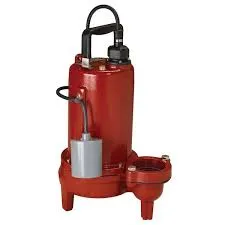Hungarian
- Afrikaans
- Albanian
- Amharic
- Arabic
- Armenian
- Azerbaijani
- Basque
- Belarusian
- Bengali
- Bosnian
- Bulgarian
- Catalan
- Cebuano
- Corsican
- Croatian
- Czech
- Danish
- Dutch
- English
- Esperanto
- Estonian
- Finnish
- French
- Frisian
- Galician
- Georgian
- German
- Greek
- Gujarati
- Haitian Creole
- hausa
- hawaiian
- Hebrew
- Hindi
- Miao
- Hungarian
- Icelandic
- igbo
- Indonesian
- irish
- Italian
- Japanese
- Javanese
- Kannada
- kazakh
- Khmer
- Rwandese
- Korean
- Kurdish
- Kyrgyz
- Lao
- Latin
- Latvian
- Lithuanian
- Luxembourgish
- Macedonian
- Malgashi
- Malay
- Malayalam
- Maltese
- Maori
- Marathi
- Mongolian
- Myanmar
- Nepali
- Norwegian
- Norwegian
- Occitan
- Pashto
- Persian
- Polish
- Portuguese
- Punjabi
- Romanian
- Russian
- Samoan
- Scottish Gaelic
- Serbian
- Sesotho
- Shona
- Sindhi
- Sinhala
- Slovak
- Slovenian
- Somali
- Spanish
- Sundanese
- Swahili
- Swedish
- Tagalog
- Tajik
- Tamil
- Tatar
- Telugu
- Thai
- Turkish
- Turkmen
- Ukrainian
- Urdu
- Uighur
- Uzbek
- Vietnamese
- Welsh
- Bantu
- Yiddish
- Yoruba
- Zulu
Telephone: +86 13120555503
Email: frank@cypump.com
szept . 16, 2024 23:24 Back to list
Heavy-Duty Slurry Pump - Durable and Efficient Solutions for Tough Applications
Heavy-Duty Slurry Pumps An Essential Tool for Challenging Environments
In various industries, the transport of abrasive and viscous materials poses a significant challenge. Heavy-duty slurry pumps have emerged as a pivotal solution to this problem, designed specifically to handle tough applications where traditional pumps fail. These pumps are engineered to manage slurries—mixtures of solids and liquids—effectively and efficiently, making them invaluable in sectors such as mining, construction, and wastewater treatment.
Design and Functionality
Heavy-duty slurry pumps are built from robust materials like metal or high-grade synthetic elastomers to withstand abrasive wear and corrosion. Their construction is crucial because slurries can contain particles that are hard, sharp, and heavy. Features such as reinforced impellers and heavy casings help minimize wear and extend the pump's lifespan. Moreover, these pumps are equipped with features like adjustable impeller clearances, allowing operators to adapt to different slurry compositions and optimize performance.
The operational mechanics of a heavy-duty slurry pump are distinct from standard pumps. These pumps often utilize centrifugal force to transport the slurry. The impeller spins, creating a pressure differential that moves the materials through the pump and into the discharge pipe. This centrifugal action is particularly effective for transferring slurries over considerable distances and through challenging terrains, making heavy-duty slurry pumps ideal for mining operations that require material movement from pits to processing plants.
Applications Across Industries
1. Mining In mining operations, heavy-duty slurry pumps play a critical role in transporting mineral slurries. They efficiently handle the thick mire generated during ore processing, recovering valuable metals while managing environmental concerns like sediment runoff.
heavy-duty slurry pump

2. Construction The construction industry extensively uses slurry pumps for transporting materials such as concrete mixes and sediment-laden water. Their ability to maintain consistent flow rates ensures that projects stay on schedule, even in the toughest conditions.
3. Wastewater Treatment In wastewater management, heavy-duty slurry pumps are responsible for moving sludge and other heavy materials to treatment facilities. They are designed to handle the complex mixture of solids and liquids found in sewage, helping to keep treatment operations running smoothly.
Advantages Over Traditional Pumps
Compared to conventional pumps, heavy-duty slurry pumps offer several advantages. Their specialized design makes them more durable and reliable in handling abrasive materials. Maintenance costs tend to be lower because these pumps require fewer replacements and repairs due to their high resistance to wear and tear. Additionally, their ability to handle high solids concentrations without clogging or losing efficiency makes them a preferred choice in demanding applications.
Conclusion
Heavy-duty slurry pumps are indispensable in managing the transportation of challenging materials across various industries. Their robust design, operational efficiency, and versatility make them a key asset for companies aiming to enhance productivity and reduce downtime. As industries continue to evolve, the demand for such specialized equipment is expected to grow, further solidifying the role of heavy-duty slurry pumps in modern industrial processes. Embracing this technology is not just a matter of efficiency but also a step toward sustainable and responsible resource management in an increasingly competitive market.
-
High-Performance Air Pumps for Sand & Gravel | Efficient Transport
NewsAug.03,2025
-
ISG Series Vertical Pipeline Pump - Chi Yuan Pumps Co., LTD.|Energy Efficiency, Corrosion Resistance
NewsAug.03,2025
-
ISG Series Pipeline Pump - Chi Yuan Pumps | Energy Efficiency&Compact Design
NewsAug.03,2025
-
ISG Series Vertical Pipeline Pump - Chi Yuan Pumps Co., LTD.|High Efficiency, Low Noise, Durable
NewsAug.02,2025
-
ISG Series Vertical Pipeline Pump - Chi Yuan Pumps | High Efficiency, Low Noise
NewsAug.02,2025
-
ISG Series Vertical Pipeline Pump- Chi Yuan Pumps Co., LTD.|High Efficiency&Compact Design
NewsAug.02,2025










